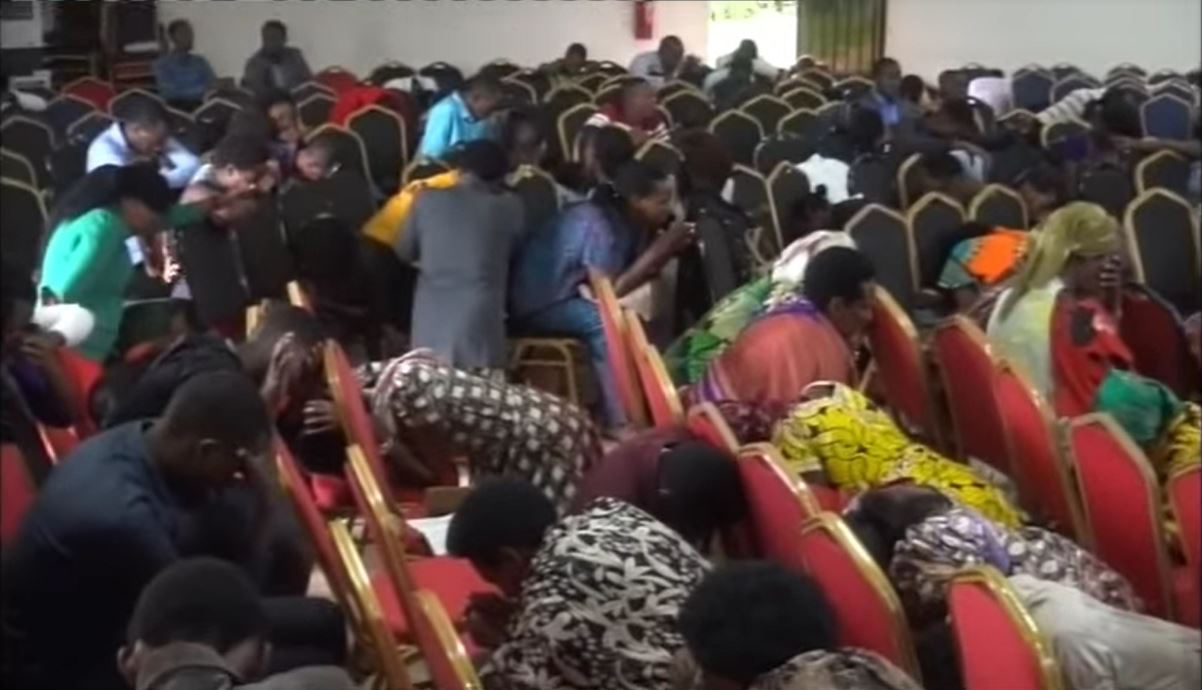
KIGALI, Rwanda (BP) — An estimated 6,000 churches have been closed across Rwanda and six pastors arrested in a government crackdown that began March 1 with 700 closures in the nation’s capital of Kigali, according to news reports.
 The six pastors, who reportedly tried to rally public support for the churches in Kigali, were accused of “masterminding” a plot to disobey the government, the BBC reported March 6.
The six pastors, who reportedly tried to rally public support for the churches in Kigali, were accused of “masterminding” a plot to disobey the government, the BBC reported March 6.
The closures come as the Rwanda Governance Board (RGO) is conducting a national review of proposed new regulations controlling faith-based institutions, including requirements that pastors have theological education and that buildings have two bathrooms each for men and women, according to World Watch Monitor.
Since March, the government closures have expanded across the nation to include 6,000 churches accused of not meeting certain structural and pollution regulations, the Associated Press said April 4, based on reports from Kigali. Most closures involve Pentecostal churches, but include dozens of mosques in the nation of 12 million people, the vast majority of them Christian.
The nation has too many churches, Rwandan President Paul Kagame said after the initial closings.
“Are these boreholes [deep wells] that give people water?” he said to news reporters regarding the 700 churches closed in the capital of Kigali, where 1,400 churches were serving a population of 1.3 million. “I don’t think we have as many boreholes. Do we even have as many factories? This has been a mess!”
The churches and houses of worship were closed for not complying with building regulations, safety and hygiene standards and pollution limitations. Many of the Kigali churches were reopened after inspections, according to news reports, but the number of churches that remain closed to date is not known. RGO head Anastase Shyaka told the AP the list of closures was still being compiled.
“The prayer houses were found in such poor physical conditions, and we are not targeting any religion,” Shyaka told the AP. “We are closing prayer houses of all different denominations and asking them to meet existing health and safety standards for their followers.”
Some of the closed churches were operating without government permits which must be renewed annually, Shyaka said.
The new regulations the RGO is studying are expected to make it more difficult for churches to open and operate.
Among the RGO concerns, some preachers “deceive their congregation with misleading sermons,” Shyaka has said in media reports. In February, Rwanda suspended a Christian radio station that aired a sermon the government viewed as “hateful” towards women, News 24 reported Feb. 28.
Religious and community leaders have expressed varying views of the closures, with some accusing the government of interfering with religious liberty, and others saying the closures are justified for safety concerns.
“Government efforts to have churches build better structures are welcome to all of us,” Esron Maniragaba, president of the Evangelical Free Church of Rwanda, told AP.
Innocent Nyezimana, a bishop and president of the Churches’ Forum, accused the government of being extreme.
“Those that failed to implement a few requirements should be reopened and allowed to work while fixing the problems raised,” the AFP quoted Nzeyimana in March.
According to the nation’s 2012 census, Rwanda’s population is 44 percent Catholic, 37.9 percent Protestant and 11.9 percent Seventh-day Adventist. Among smaller groups represented are Muslims at 2 percent, and 0.7 percent that are Jehovah’s Witnesses.













